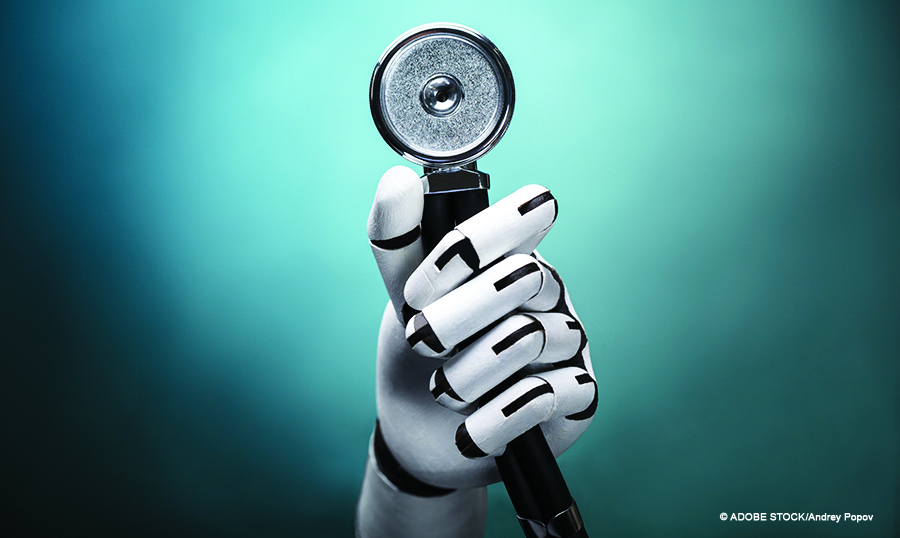Explore This Issue
July 2024Artificial intelligence (AI) is often described as the fourth industrial revolution, with the capacity to reshape society in much the same way as the steam engine in the 18th century, electrical power in the 19th, and computers and the internet in the 20th century.
What may set AI apart is its fundamental challenge to what it means to be human. Is it intelligence? Is it consciousness? Is it creativity? Kindness? Empathy? Courage? Is it something inexpressible?
The practice of medicine combines scientific and artistic elements. Physicians apply their technological and didactic skills as well as qualities like judgment, curiosity, empathy, compassion, and humor to help people heal. While the scientific aspect is crucial, patients often view the art of medicine—which is harder to define but just as important—as equally essential.
When asked if AI will take over physicians’ jobs, most people say no—albeit a qualified no. “AI is not positioned to replace those aspects of medical practice that are deeply human and relational,” said Emre Sezgin, PhD, principal investigator and head of Intelligent Futures Research Lab at the Center for Biobehavioral Health and assistant professor of pediatrics at The Ohio State University College of Medicine in Columbus. “The nuanced understanding of a patient’s history, the empathy conveyed in a difficult diagnosis conversation, and the ethical dilemmas often faced in treatment decisions are aspects that AI models are incapable of addressing.”
The qualified part of that answer is that although AI may not replace physicians’ central role in healthcare delivery, it will increasingly take on tasks to augment or complement what physicians currently do. Dr. Sezgin sees certain tasks as well suited for AI integration, such as analysis of large datasets, pattern recognition, and routine administrative tasks. “AI-powered tools can enhance diagnostic accuracy via such support, optimize personal treatment plans, and handle administrative duties,” he added.
In a commentary published in Digital Health, Dr. Sezgin described AI as repurposing, not replacing, physician roles. He sees a collaborative relationship between AI and physicians, often referred to as a ‘human-in-the-loop” (HITL) approach, in which human judgment is integrated into the loop of AI’s decision-making or learning process; eventually AI interacts with humans to augment care. With human–AI collaboration, for example, AI can offer insights into clinical decision making that physicians can then leverage with their own knowledge to make clinical judgments. The feedback AI gets from the ways physicians make their final decisions based on AI input helps to improve AI adaptability. Such continuous engagement between AI and humans can facilitate greater diagnostic accuracy and clinical decisions.
Dr. Sezgin underscored the idea that this type of relationship between AI and clinicians “requires a shift in mindset for continuous learning and adaptability.” For clinicians, this means staying informed about advancements in AI and understanding how to integrate the technology into clinical practice to enhance patient care.

